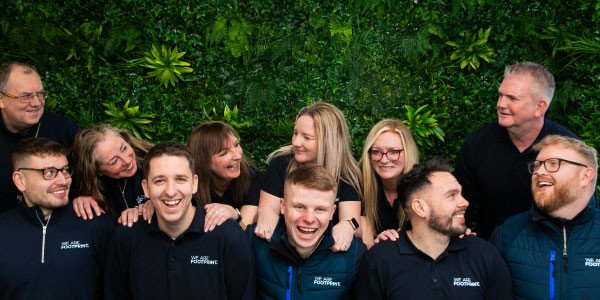For a long time, people with convictions have faced immense barriers when trying to rebuild their lives after serving their sentence. But there is a growing recognition that providing employment opportunities to prison leavers is not only the right thing to do – it’s also a practical, forward-thinking solution to some of the biggest workforce challenges we face today.
Approximately 2.3 million people in the UK have a conviction. That’s around one in four people of working age – a significant, often overlooked, talent pool. And yet, just 17% of people leaving prison manage to find a job within the first year. It’s a missed opportunity, not just for those individuals, but for employers, the economy, and wider society.
Employers who have taken steps to welcome people with convictions into their workforce often report overwhelmingly positive experiences. According to the Chartered Institute of Personnel and Development (CIPD), 86% of employers who have hired someone with a conviction say they are good at their job. In addition, nine in ten employers say that diverse hiring – including people with criminal records – has enhanced their reputation and helped them win new business.
Despite this, the stigma persists. For many prison leavers, even getting a foot in the door can be an uphill battle. Yet research consistently shows that stable, meaningful employment is one of the most effective ways to reduce reoffending. Employment provides structure, independence, and a sense of purpose. It also offers vital social connection and a route to long-term stability.
The cost of reoffending is around £18 billion per year, with reoffending rates at more than 50% for those serving short-term sentences. Having a job can reduce the likelihood of reoffending by up to half, making employment not just a rehabilitative tool, but a vital part of safer, stronger communities.
Yet practical barriers remain. Some prison leavers lack basic identification, access to a bank account, or even a way to travel to work. Others might not be used to managing their own time or navigating a structured routine. These are not insurmountable challenges, but they do require planning, support and – above all – compassion. At We Are Footprint, we understand that for many, the recruitment process itself can be a significant barrier to securing work which is why we offer tailored training services and working with a network of trusted partners and stakeholders to support individuals in overcoming these challenges.
Holistic support, including liaison with authorities, help with documentation, and even ensuring accommodation is in place, can make all the difference. Equally important is open, transparent communication with existing employees to create an inclusive and welcoming culture that understands the value of giving someone a second chance.
There’s also a compelling business case to be made. Recruiting from this talent pool can reduce recruitment costs, fill skills shortages, and contribute to building a loyal, hardworking team – besides the reputational benefits of being known as a socially responsible, values-led organisation.
Employers can take practical steps to open up their hiring processes – from using inclusive language in job adverts and ensuring fair and skills-based shortlisting, to building partnerships with local support agencies and recruitment agencies committed to social value, ethical practices, and genuine care for the people they place.
Focusing on what someone can bring to a role rather than the label they’ve been given in the past unlocks potential - not just for the individual, but for the industry in which they can work. At We Are Footprint, we believe that everyone deserves the opportunity to rebuild their life with dignity, purpose and support.



